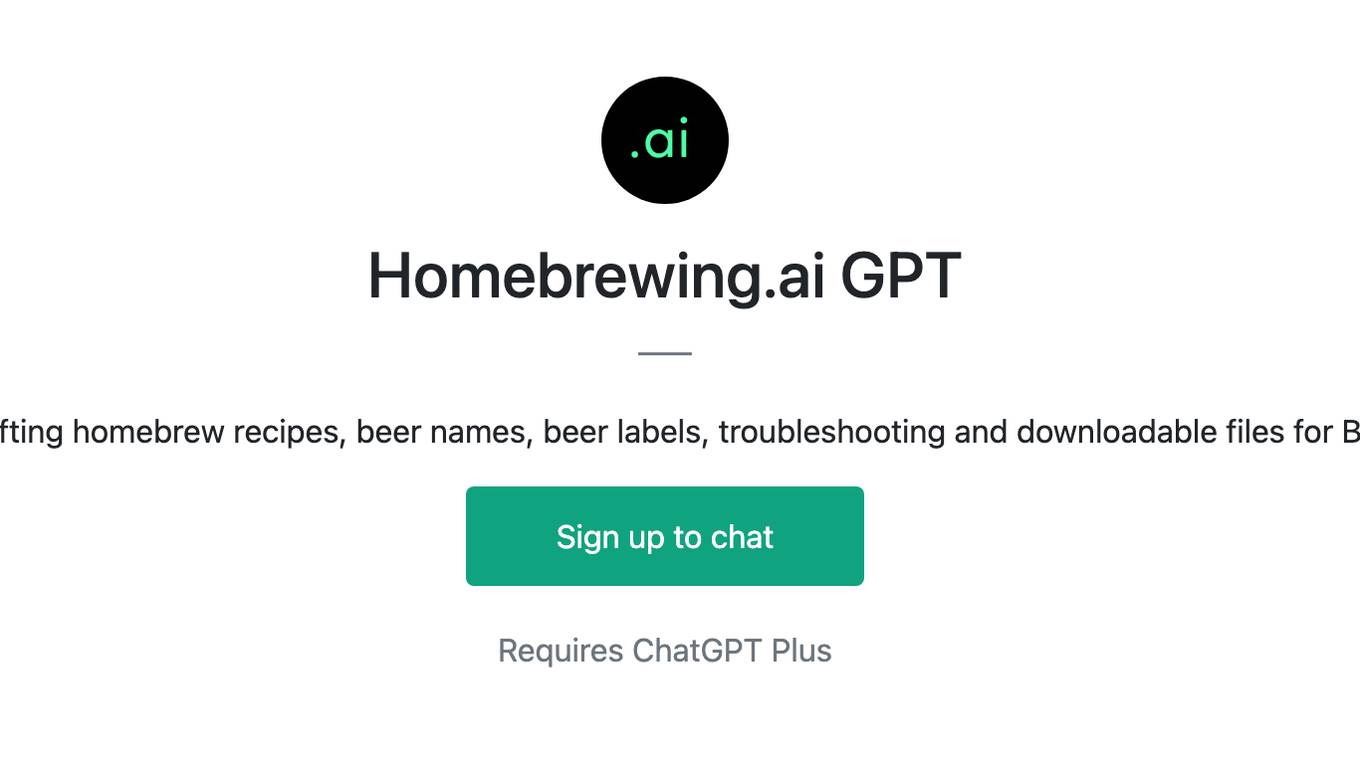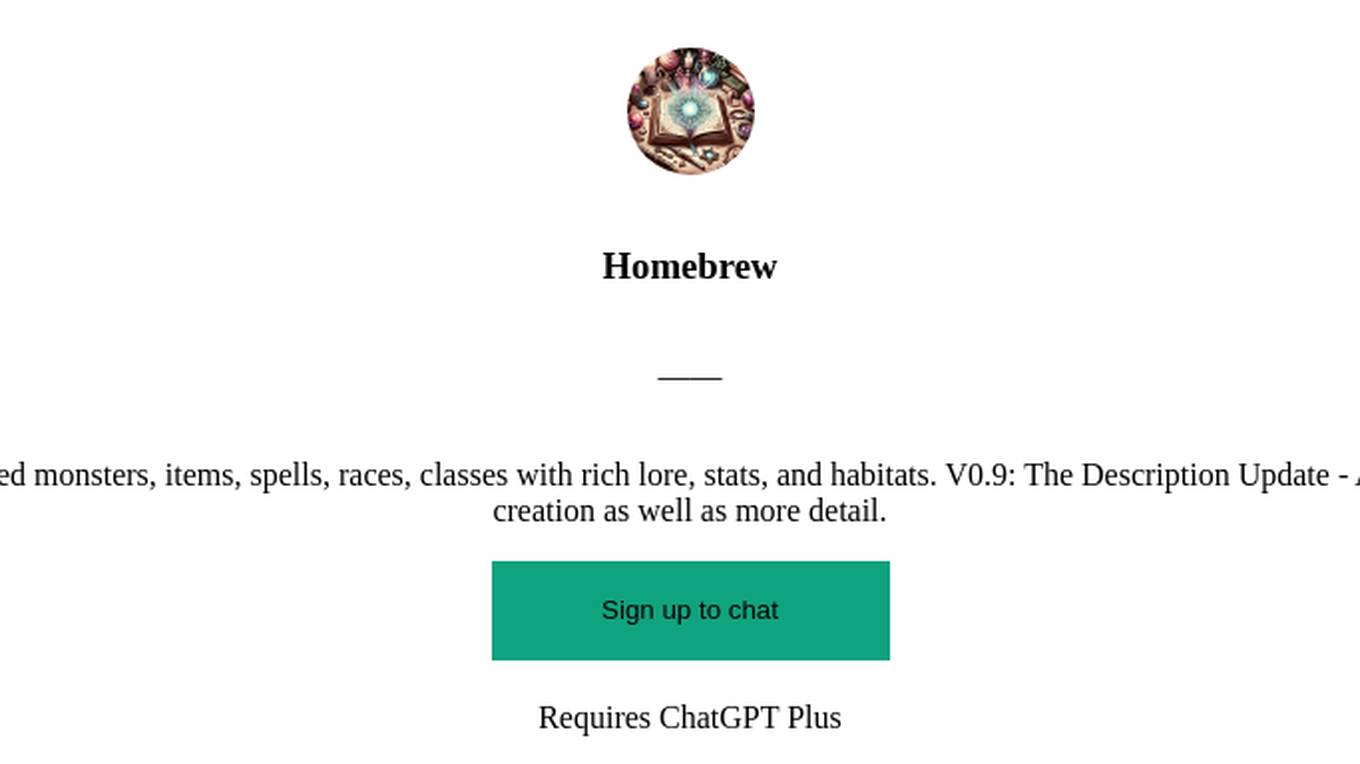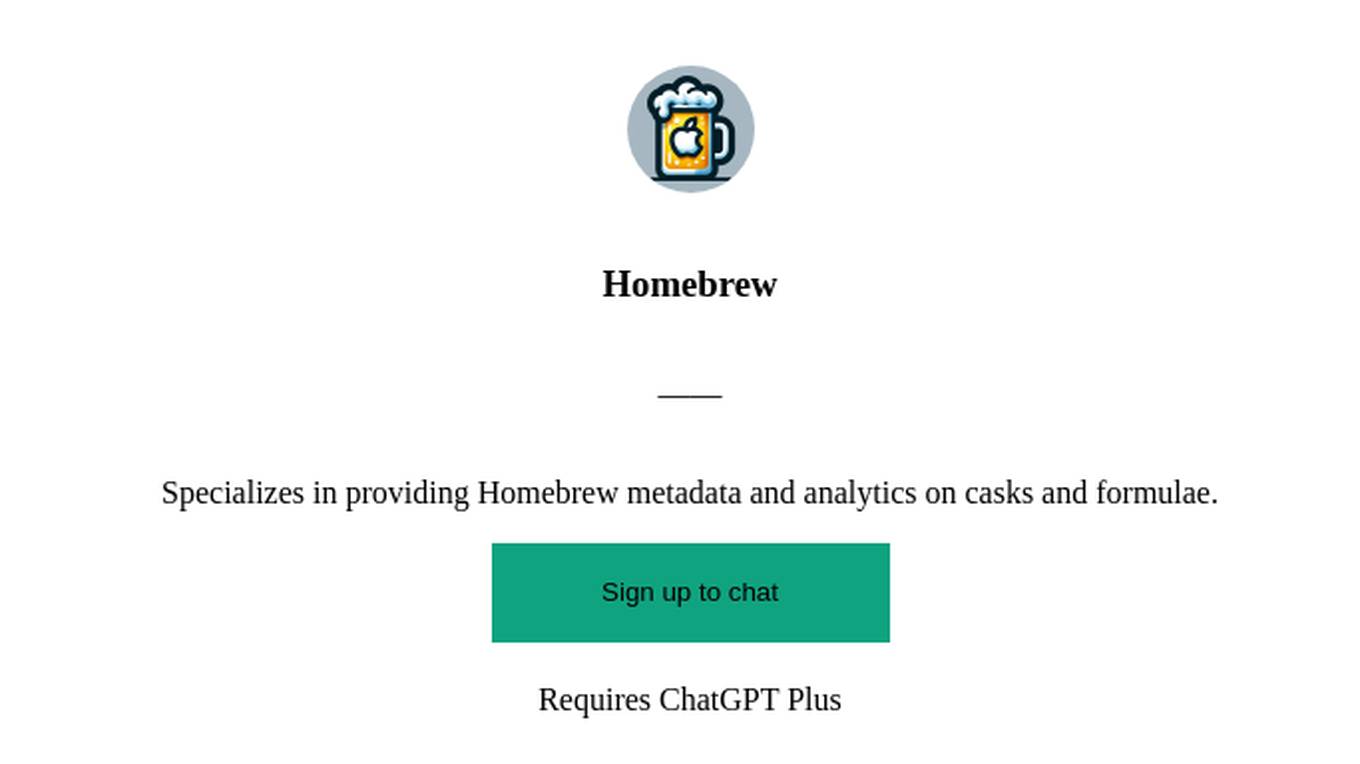Best AI tools for< Homebrewer >
Infographic
0 - AI tool Sites
No tools available
0 - Open Source Tools
No tools available
5 - OpenAI Gpts

Homebrewing.ai GPT
Expert in crafting homebrew recipes, beer names, beer labels, troubleshooting and downloadable files for BrewFather.
gpt
: 30+

Homebrew
Expert Homebrew DND tool for crafting detailed monsters, items, spells, races, classes with rich lore, stats, and habitats. V0.9: The Description Update - Added reactions, equipment and more to monster creation as well as more detail.
gpt
: 800+


